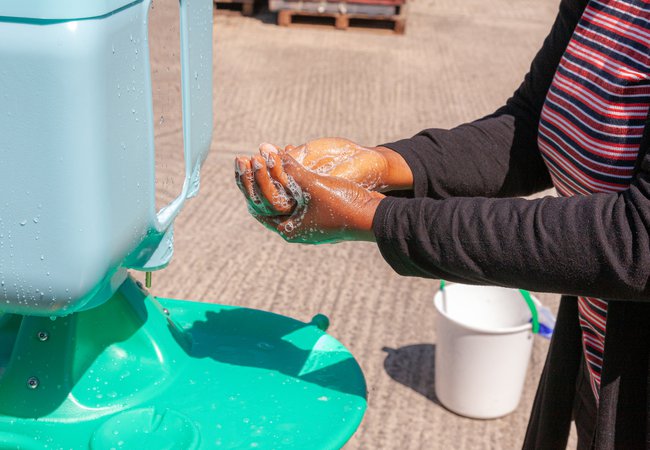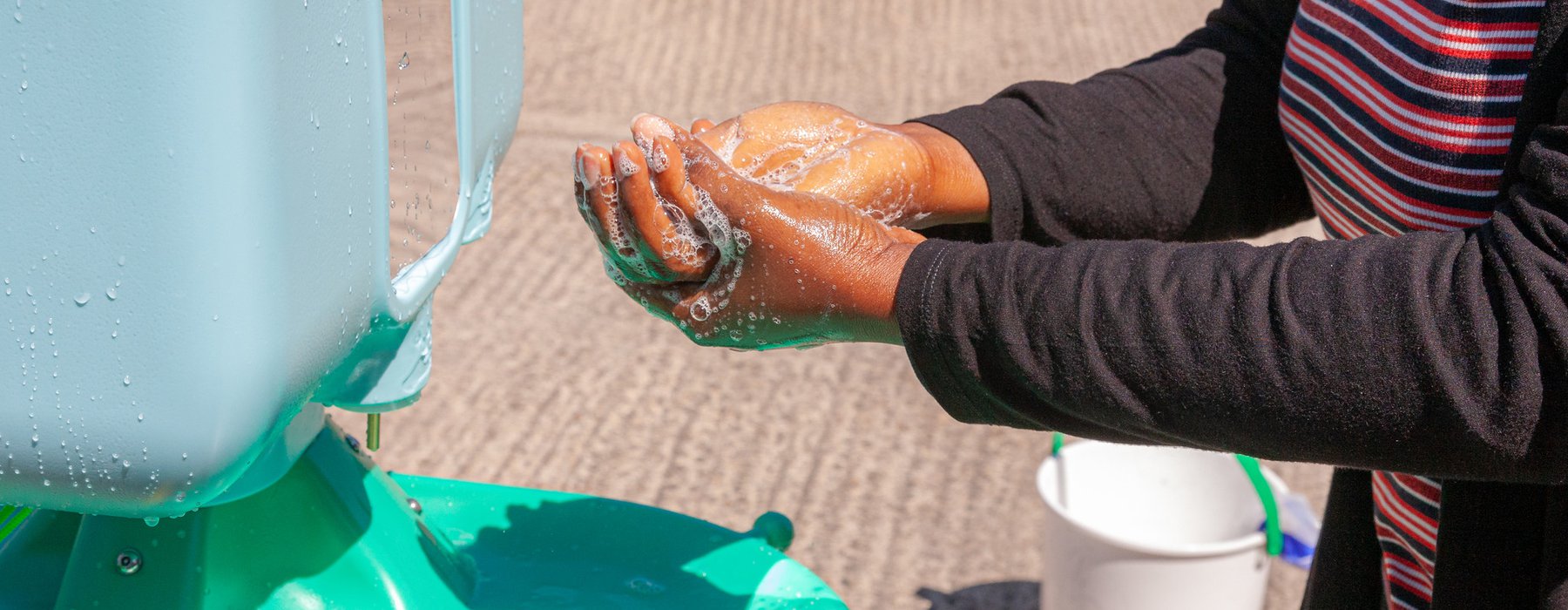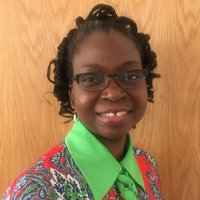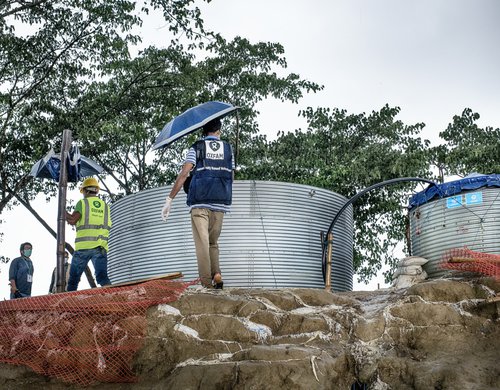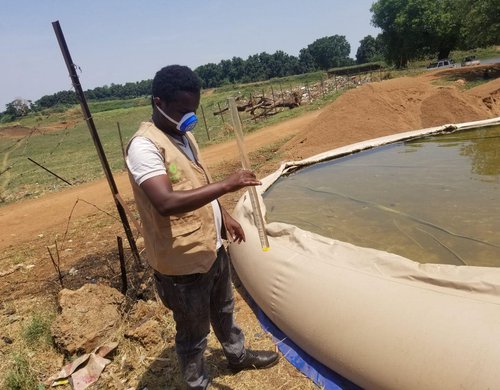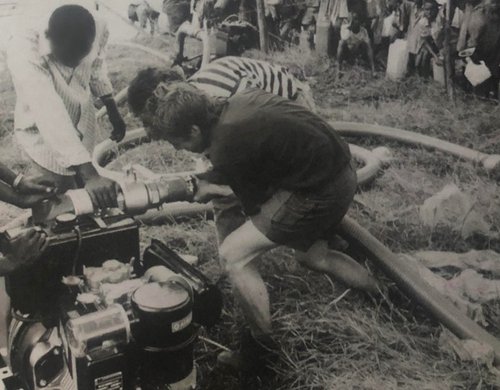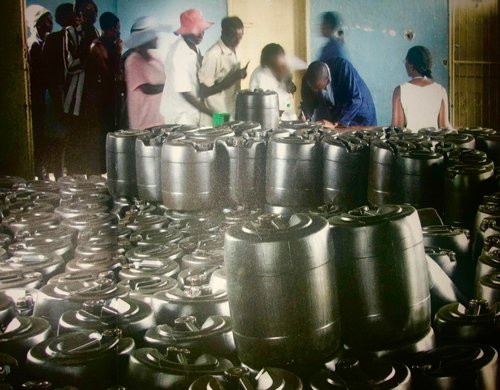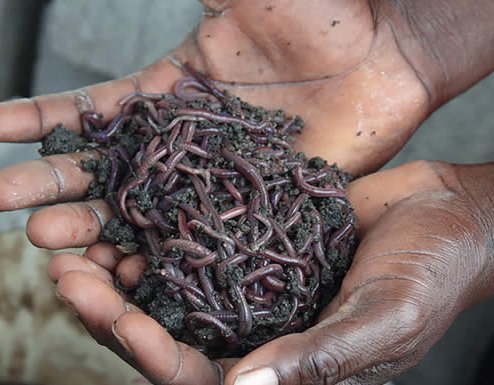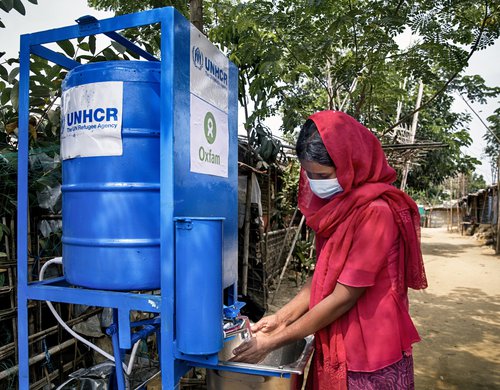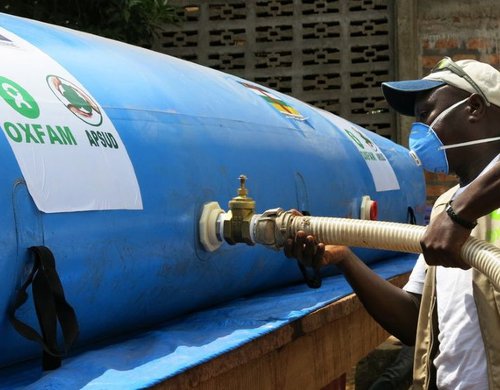Handwashing works. But to be effective you need to do it frequently and do it properly.”
Dr. Foyeke Tolani is a Public Health Promotion Advisor for Oxfam
Handwashing works
I joined Oxfam to save lives, and an important part of this is promoting healthy handwashing to help prevent the spread of infectious diseases.
What we've learned during the Coronavirus outbreak
During the coronavirus outbreak we’ve learned not just to do it before eating and after using the toilet, but also before touching our face, using soap and water to break the virus down. Foam destroys the cell membranes, and water rinses it off.
We also need to practice general hygiene, especially respiratory hygiene, for example, and cleaning commonly touched surfaces. Physical distancing is equally important and shielding vulnerable people that may be more susceptible to the virus.
What we've learned from outbreaks of other diseases
One of the key things we’ve learned is that we really need to engage with communities to help people understand the importance of handwashing with soap.
Effective handwashing can be motivated by fear, but as soon as an emergency is over, people fall back to normal practices. It is essential to listen, have conversations, and build trust rather than just telling people what to do. Over time, this is what ultimately leads to acceptance or rejection.
How does Oxfam work with communities to tackle outbreaks of disease?
First, we assess the situation, and we talk to people. We listen, and feed back to the community what we have heard. We ask people “what do you think you can do?” and “what help do you need from us?”
Pablo Tosco/Oxfam
We ask people 'what do you think you can do?' and 'what help do you need from us?'”
Dr Foyeke Tolani, Public Health Promotion Advisor, Oxfam
How does Oxfam prepare for a coronavirus outbreak?
It depends on the stage of the outbreak in each country. It’s important for Oxfam to understand where there are gaps, and if we can help to fill them. We always ask where our knowledge and equipment is best focused and how to prevent coronavirus using our existing programmes of work.
- We make sure our coronavirus response is part of our ongoing work.
- We seek to understand [what] will help us to get to the people who need us most.
- We provide clean water supplies and sanitation where people are quarantined.
- And Personal Protection Equipment (PPE) for healthcare workers.
I joined Oxfam as our goal is to save lives
While doing my doctorate testing medicinal remedies for diarrhoea-related diseases, I saw that children and mothers suffer a lot. In the 90s, I was contacted by MSF (Médecins Sans Frontières) to investigate a cholera outbreak in a slum area in Lagos, Nigeria and got very interested in the prevention side.
I loved working with communities, finding solutions together, and seeing the immediate impact.
Effective handwashing has a huge impact
In some cases, we estimate this has led to a 50% – 70% reduction in disease. It means people are able to work, and children can go to school. It reduces the burden on carers and gives people time back to enjoy being a family, all of which is vital for positive mental health. People feel more confident with clean hands, the perfume lifts them up.
I joined Oxfam as our goal is to save lives, and an important part of this is promoting healthy handwashing practices to help prevent the spread of infectious diseases. I am able to research ways to make handwashing easier for people, especially more vulnerable people facing disasters. Handwashing is an important thing to do, and we can make it happen.
